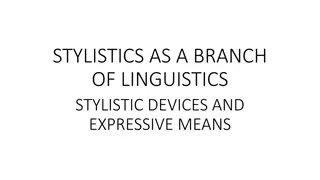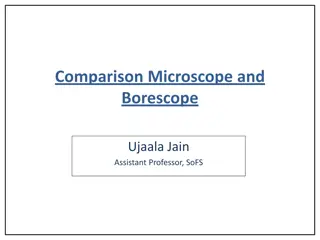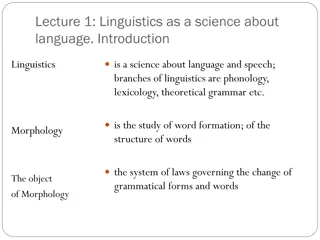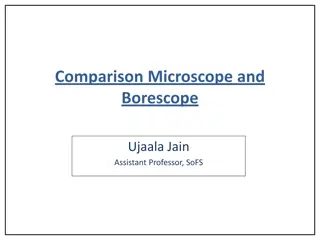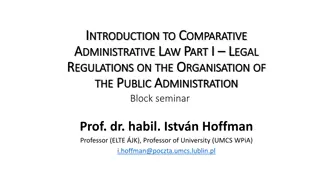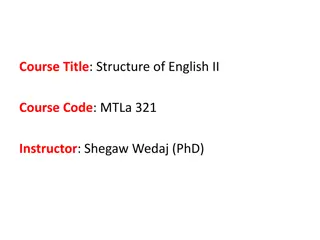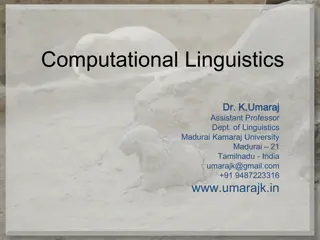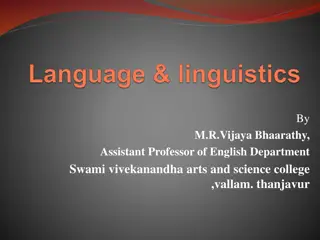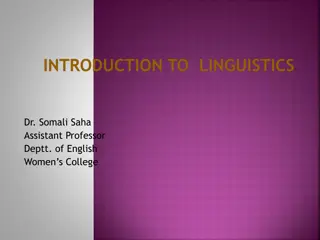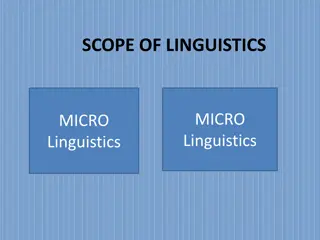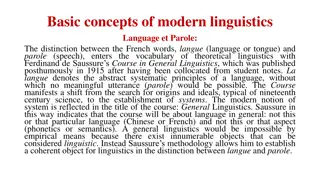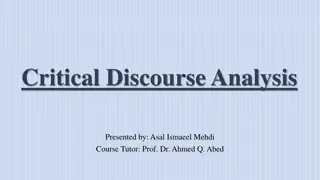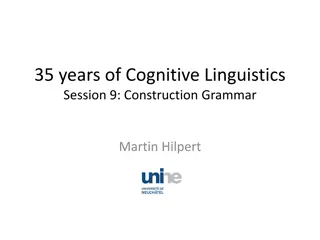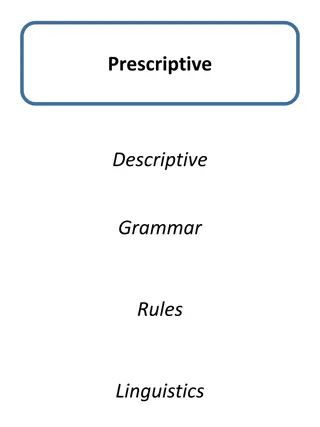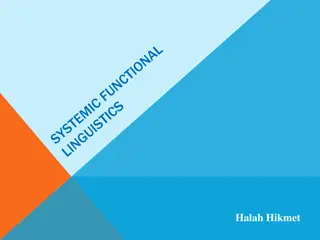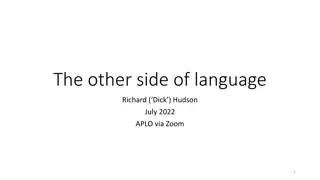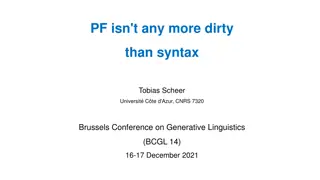Linguistics: Definition, Study, and Comparison
Linguistics is the systematic study of language, exploring its various aspects and theorizing how it functions. From defining language to studying variation among languages, linguists delve into questions about communication, learning, and societal influences. Contrasting traditional grammar, linguistics focuses on description rather than prescription, analyzing both written and spoken language forms.
Download Presentation

Please find below an Image/Link to download the presentation.
The content on the website is provided AS IS for your information and personal use only. It may not be sold, licensed, or shared on other websites without obtaining consent from the author.If you encounter any issues during the download, it is possible that the publisher has removed the file from their server.
You are allowed to download the files provided on this website for personal or commercial use, subject to the condition that they are used lawfully. All files are the property of their respective owners.
The content on the website is provided AS IS for your information and personal use only. It may not be sold, licensed, or shared on other websites without obtaining consent from the author.
E N D
Presentation Transcript
OVERVIEW 1. Defining Linguistics 2. What is a linguist? 3. Traditional Grammar vs. Linguistics
DEFINING LINGUISTICS Linguistics can be defined as the systematic study of language, a discipline which describes language in all its aspects and formulates theories as to how it works . Linguistics is interested in providing answers for different interesting questions about languages, such as what is language? and how does language work?
DEFINING LINGUISTICS Linguistics explores different aspects of these too broad questions, thus it attempts to answer a more specific questions, such as: What do all languages have in common? What range of variation is found among languages? How does human language differ from animal communication? How does a child learn to speak? Why do languages change? To what extent are social class differences reflected in language?
WHAT IS A LINGUIST? A linguist is a person specialized in linguistics. A linguist describes languages, but does not prescribe (dictate) how to use them. For linguists, all languages, and all aspects of a language, are interesting and worth in-depth analyses. For linguists, the patterns of any language are more important than the physical substance out of which they are made.
TRADITIONAL GRAMMAR VS. LINGUISTICS Traditional grammar is an old method to study and teach language. Linguistics differs from traditional grammar in a number of respects: 1. Linguistics is descriptive whereas traditional grammar is prescriptive. 2. Unlike traditional grammar, linguistics does not force any language into the framework of another. 3. Traditional grammarian is known for their interest in studying written language only. In contrast, linguists tend to be interested in analyzing both written and spoken forms of language.


